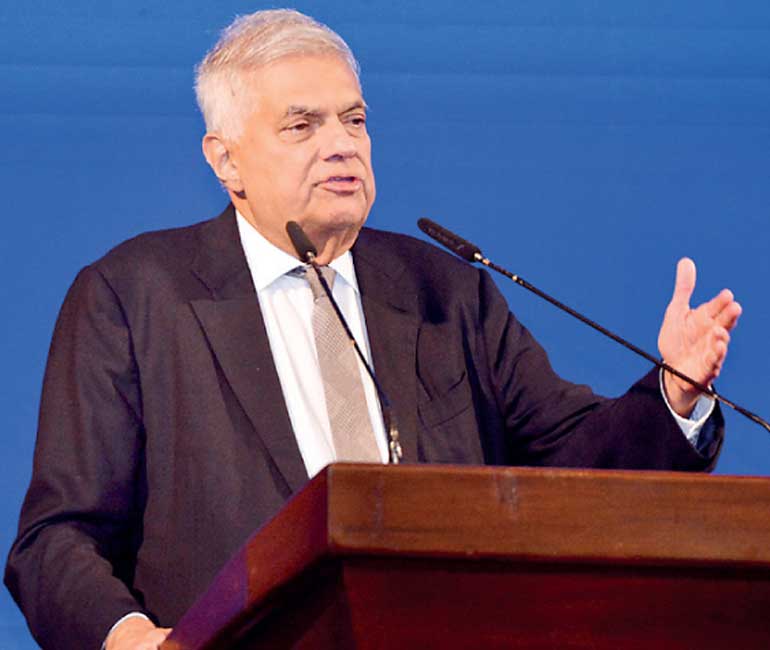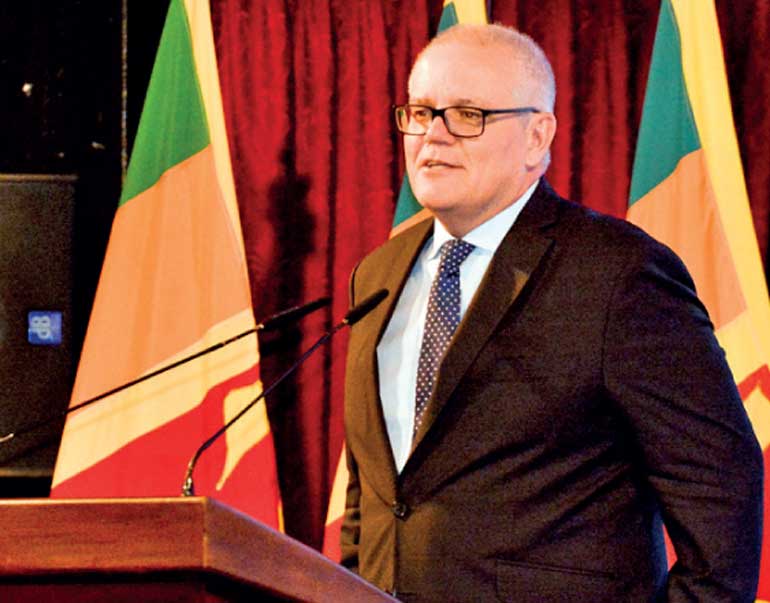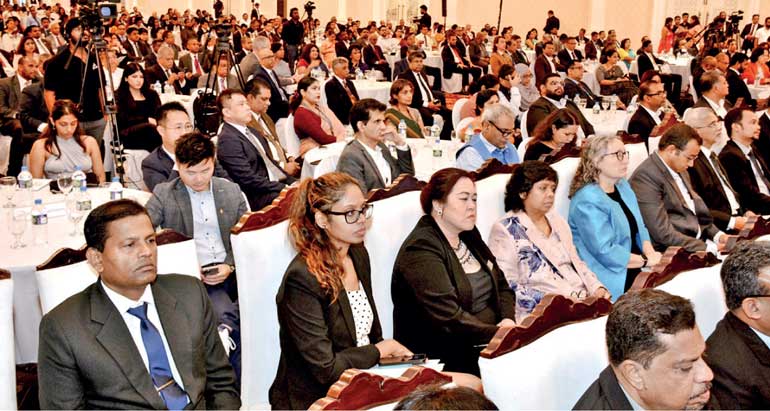President calls for “fundamental change” towards a better Sri Lanka
Friday, 19 July 2024 00:00 – – 64

President Ranil Wickremesinghe

Former Australian Prime Minister Scott Morrison

A section of 600-strong participants at the Human Capital Summit at Temple Trees yesterday – Pix by Upul Abayasekara
- Inaugurating the Human Capital Summit stresses need for a more vigorous human capital formation for which the prerequisite is greater finances and sound management
- With 300,000 to 400,000 people leaving in the past two years says brain drain will continue to a lesser degree until 2026 or 2027 by when benefits of key economic reforms undertaken during under his leadership will bear fruit
- Says there is no such thing as import substation economy but a highly competitive modern export-oriented economy
- Points to external creditors recognition of Sri Lanka’s capacity to repay their debt after the concession given
- Announces measures to overhaul the vocational and technical college system a move which enabled multiple Asian countries to become more competitive
- Says will seek support from friendly countries to bolster the vocation training sector in tandem with reforms in education
Calling for a “fundamental change” to usher greater prosperity President Ranil Wickremesinghe yesterday emphasised the need for a more vigorous human capital formation for which the pre-requisite is greater finances and sound management in the country.
He made this key observation as well as the way forward at the Human Capital Summit organised by a public and private collaboration. “We must look at our human capital formation. Without having financial capital, you can’t develop your human capital. So, there must be an approach to be taken,” he told the Summit which featured over 60 global and local experts and attended by over 600 participants. Guest of Honour was former Australian Prime Minister Scott Morrison. He said that due to the bankruptcy of the nation, nearly 400,000 people migrated in 2022 and a lesser number last year, the President said brain drain will continue to a lesser degree until 2026 or 2027 by when benefits of the fundamental economic reforms undertaken during the past two years under his leadership will bear fruit.
He emphasised that external creditors have recognised that going forward Sri Lanka has the capacity to repay their debt after the concession given.
In an apparent response to NPP-JVP theories, the President in his address also said “there is no such thing as import substation economy as Sri Lanka also relies on imported inputs.
We need to get this off our heads,” the President pointed out.
”We have to first undertake and commit ourselves to a highly competitive modern export oriented economy,” Wickremesinghe said adding that modernising agriculture, IT, tourism and renewable energy are among key growth drivers along with greater integration with giant and prospering neighbour India. With regard to the latter, he singled out land connectivity between Sri Lanka and burgeoning South India as a critical development.
He also stressed the importance of overhauling the vocational and technical colleges.
“I want to have one single agency for this area which is to pass a post -school education. All the training centers as they are called, must be merged to be effective,” the President said, adding that Australia’s success in this regard will be a key learning for Sri Lanka.
“If we look at Australia and other countries in Asia that has developed including Japan, Singapore, China, Thailand, Malaysia and Vietnam, all of them have turned to their, their good system of vocational, technical education, high education and they are all part of human capital formation,” Wickremesinghe said adding that he will seek support from friendly countries to bolster the vocation training sector in tandem with reforms in education.
The key objective of the Sri Lanka Human Capital Summit was to deliberate and identify human capital opportunities in order to develop a National Agenda that will in turn support Sri Lanka’s growth sectors.
The summit was a public-private partnership involving the Board of Investment, Colombo Port City, Association of Human Resource Professionals (AHRP), KPMG, Deloitte, CIMA, ICCSL and the Daily FT.






